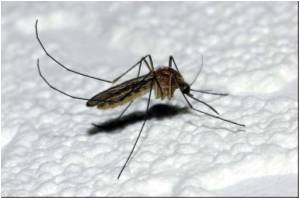
Spillman showed that spiroindolones block the parasite's salt pump, causing the cell to fill rapidly with salt.
"We believe the spiroindolones kill the parasite by causing a salt overload," added Spillman, the journal Cell Host and Microbe reports.
Spillman linked up with members of the spiroindolone-development team in Singapore (Novartis Institutes for Tropical Diseases) and the US (Genomics Institute of the Novartis Research Foundation).
The spiroindolones are the first genuinely novel class of chemicals to be tested in malaria patients for over 20 years, according to an ANU statement.
The malaria parasite is a single-celled organism that invades the red blood cells of its human host, killing more than a million people each year.
Advertisement
RSB director Kiaran Kirk, senior study author, said: "The malaria parasite's salt pump would seem to be an Achilles heel for the parasite, particularly vulnerable to attack. Knowing this, we can now look for other drugs that block this pump."
Advertisement












